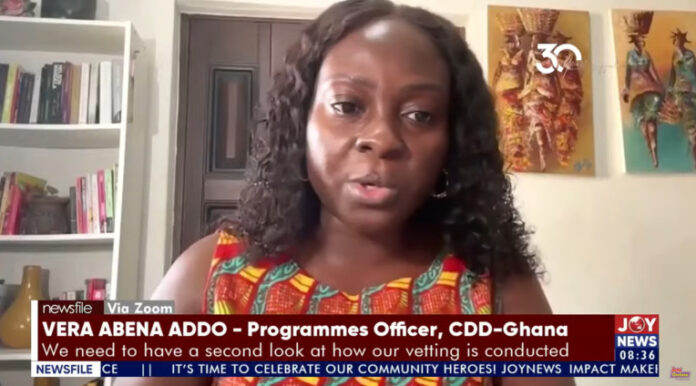A Programmes Officer at the Centre for Democratic Development (CDD-Ghana), Vera Abena Addo has called for a review of the parliamentary vetting process to enhance efficiency and accountability.
Speaking on JoyNews’ Newsfile on Saturday, January 18, she highlighted the importance of improving the system to better serve the public and strengthen democracy.
“So far, we’ve seen good questions from Parliament, which have triggered equally good responses from the nominees,” she said, referring to the ongoing vetting of ministerial nominees.
“Parliamentary approval is critical for consolidating our democracy, enhancing both vertical and horizontal accountability. It’s also commendable that the media allows the public to follow the process closely.”
She argued that the current process could be more efficient. She suggested a “second look” at the structure of vetting, including the time allocated to nominees and the involvement of committee members.
“We spend too much time on one nominee, often because some members ask multiple questions while others remain silent, particularly from the majority. This isn’t efficient,” she noted.
She proposed exploring alternative methods, such as bisector or parallel vetting, to make the process efficient.
“Having a hybrid approach where experts from different fields participate could make vetting more thorough. Parliament is composed of individuals with diverse expertise, and committees are set up based on that. Perhaps we could leverage this and conduct parallel vetting sessions to save time.”
As new nominations are expected soon, Madam Vera emphasised the urgency of these reforms.
“With nominations coming up, it’s essential we find ways to get the process done effectively. Parallel vetting, where experts conduct interviews concurrently, could be a practical solution,” she concluded.
ALSO READ:


